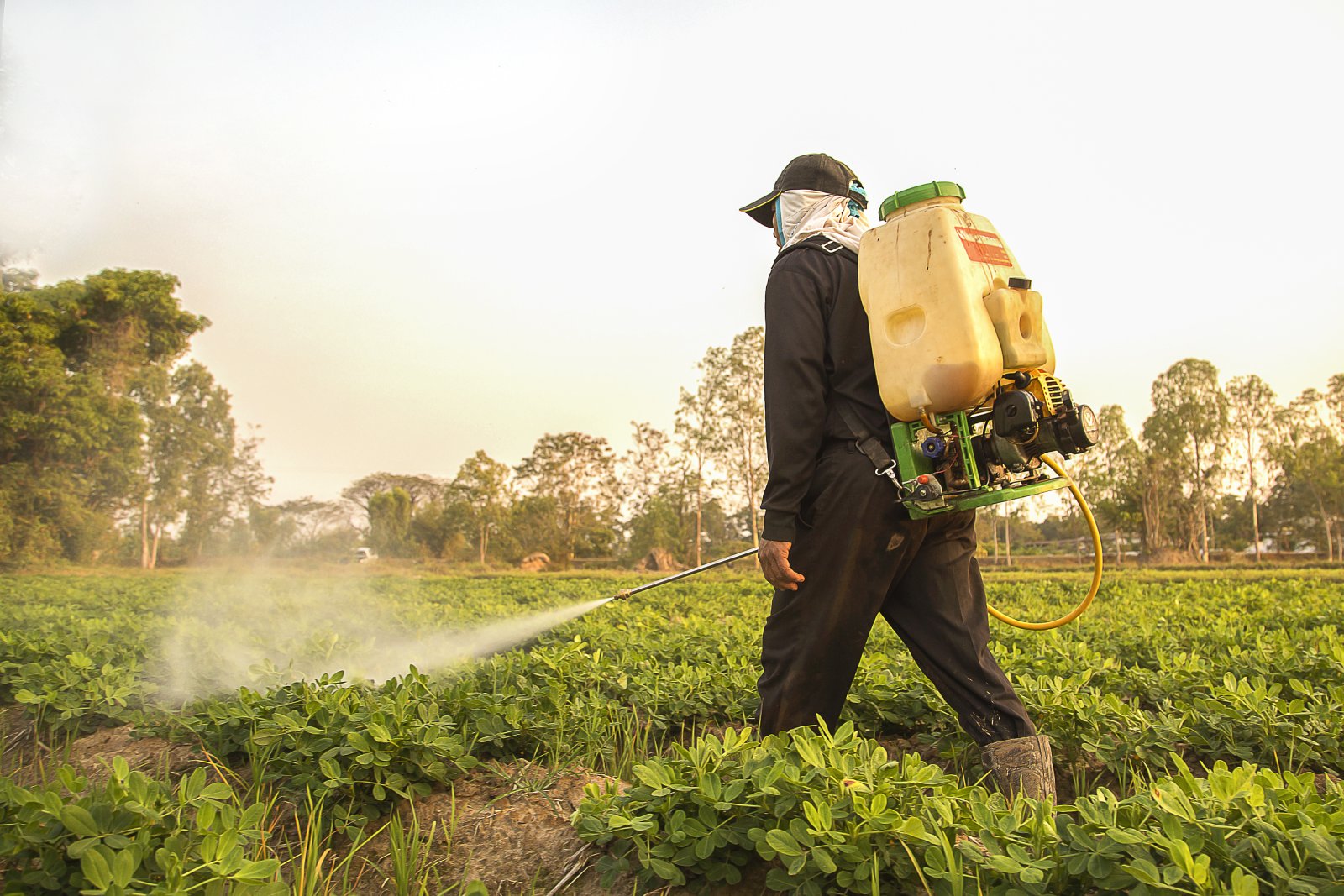A widely-used weedkiller has been banned in the US after the EPA judged it too dangerous for farmworkers, particularly pregnant females and their unborn children.
Emergency Ban Issued

Image Credit: Shutterstock / chaylek
In a historic move, the Environmental Protection Agency has issued an emergency ban on the pesticide DCPA, also known as Dacthal, due to the health risks it poses.
DCPA

Image Credit: Shutterstock / Bannafarsai_Stock
Dimethyl tetrachloroterephthalate (DCPA) is a weedkiller used in the farming industry to protect crops, such as broccoli, cabbage, and onions, from pests. However, residue from the pesticide can remain on produce long after it is applied.
Severe Health Risks

Image Credit: Shutterstock / PR Image Factory
The EPA issued the order on Tuesday, claiming that exposure to the weedkiller can pose serious health risks for farm workers. In particular, pregnant women, due to its effects on fetal development.
Insecticide, Fungicide and Rodenticide Act

Image Credit: Shutterstock / Andrey_Popov
The emergency suspension falls under the 1947 Insecticide, Fungicide, and Rodenticide Act, a federal law that dictates the registration, sale, and usage of pesticides in use.
Immediate Removal Required

Image Credit: Shutterstock / Sergey Nivens
“DCPA is so dangerous that it needs to be removed from the market immediately,” said Michal Freedhoff, a spokesperson for the EPA’s Office of Chemical Safety and Pollution Prevention, in a public statement accompanying the emergency ban.
Doing Its Job

Image Credit: Shutterstock / PR Image Factory
“It’s [our] job to protect people from exposure to dangerous chemicals,” the statement continued. “In this case, pregnant women who may never even know they were exposed could give birth to babies that experience irreversible lifelong health problems.”
Potential Impacts

Image Credit: Shutterstock / wavebreakmedia
The agency has cited evidence of impaired brain development leading to lower IQ, impaired motor skills, low birth weight, and further complications for these unborn children.
Links to Cancer Risk

Image Credit: Shutterstock / BearFotos
Peer-reviewed studies from Vanderbilt University have also shown links between DCPA and higher risks of cancer for agricultural workers.
A Historic Decision

Image Credit: Pexels / Karl Solano
The announcement is unprecedented and has been described as “historic” as it is the first time in four decades that the agency has used its authority to outright ban a widely-used pesticide.
In Use Since 1958

Image Credit: Shutterstock / Oleksii Synelnykov
DCPA has been in use across the US since 1958, but officials, health organizations, and environmental advocates have been raising questions and concerns about its use for decades.
Banned in the EU

Image Credit: Shutterstock / Rawpixel.com
In fact, the use of DCPA was outlawed by the European Union back in 2009, with some calling for the US to do the same.
Years of Trying

Image Credit: Shutterstock / Pixel-Shot
According to Freedhoff, the EPA has spent years seeking more information from chemical manufacturer AMVAC Chemical Corp, including company data and private studies on the chemical’s effect on thyroid function.
Ignored for a Decade

Image Credit: Shutterstock / aerogondo2
The EPA sent its first formal request in 2013 but was ignored by the company until the Biden administration intervened and sent a notice to suspend the use of DCPA due to the company’s failure to respond.
Proposed Protocol Changes

Image Credit: Shutterstock / Pressmaster
The notice provoked AMVAC to provide the data in late 2023, more than 10 years after the initial request, as well as changing some protocols around the sale and use of DCPA. These changes were deemed insufficient by the EPA.
Ineffective Measures

Image Credit: Shutterstock / wellphoto
“We did make some good-faith efforts to work with the company,” Freedhoff said. “But in the end, we didn’t think any of the measures proposed by the company would be implementable, enforceable or effective.”
Too Much Risk

Image Credit: Pexels / Quang Nguyen Vinh
Freedhoff also noted that these proposed measures and the ensuing review process would take too long to implement, leaving workers at risk.
“A Great First Step”

Image Credit: Shutterstock / Salivanchuk Semen
The EPA press release included a statement from Mily Trevio-Sauceda, executive director of Alianza Nacional de Campesinas, a non-profit advocating for female farmworkers. “This emergency decision is a great first step that we hope will be in a series of others that are based on listening to farmworkers, protecting our reproductive health, and safeguarding our families,” she stated.
Too Little, Too Late?

Image Credit: Shutterstock / Salivanchuk Semen
Other environmental advocates like Jeannie Economos, who leads a pesticide safety and environmental health program for the Farmworker Association of Florida, have argued that the late ban is little consolation for workers who have already spent years working with DCPA.
“How Many People Got Sick?”

Image Credit: Shutterstock / Anastassiya Bezhekeneva
“It shouldn’t have taken this long, but we are glad that they did it finally,” she told The Washington Post. “How many people got sick in the meantime? How many babies were born with low birth weight? We don’t know.”
No Statement from AMVAC

Image Credit: Shutterstock / Africa Studio
AMVAC Chemical Corp, the company that invented and manufactures DCPA, has not yet provided public comment on the EPA ban.
Featured Image Credit: Shutterstock / Fotokostic.
The images used are for illustrative purposes only and may not represent the actual people or places mentioned in the article.


